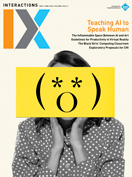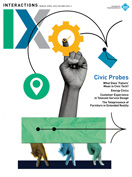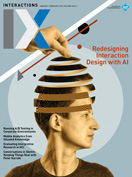Authors: Ben Shneiderman, Catherine Plaisant, Jonathan Lazar, Niklas Elmqvist, Jessica Vitak
Posted: Wed, February 01, 2023 - 10:23:00
Since SIGCHI and the University of Maryland’s Human-Computer Interaction Lab (HCIL) were founded at nearly the same time, we—a selection of HCIL faculty spanning the past four decades—have a special bond with the SIGCHI community. The emergence of SIGCHI and the annual CHI conference validated beliefs in the importance of rigorous studies of user interfaces and later the design of user experiences. CHI has always been about homecoming and celebration, where reconnecting with respected colleagues made for joyous encounters. The warm, enthusiastic, and supportive discussions continually energize and inspire us to do our best in preparing each year.
The CHI conference began with the early ideas of human factors—in fact, Ben chose the conference title, “Human Factors in Computing Systems,” in 1982—so it is time to consider an update. Early research was grounded in controlled experiments drawn from cognitive psychology and applied to user interfaces from computer science. As it matured, the CHI community expanded to cover design, accessibility, and community-supported collaborative work, using qualitative research methods from the social sciences. In recent years, this expansion has included sustainability, international development, critical race theory, policy and law, media studies, and democratic governance through participatory methods. Across all foci, there has always been a focus on improving the quality of life through technology.
The CHI conference and its organizers understand the strength of its amazing diversity: gender, race, ethnicity, national origins, age, abilities, and more. Yet there is still more to be done, and we argue that sustainability is an area where SIGCHI can take the lead. Sustainability is more than a foundational research topic—it is also an issue we can directly address in conference planning.
How can the bold, generous, and interactive spirit of CHI be preserved in fully virtual or hybrid conference environments? How can a virtual or hybrid environment build trusting collaborations, address meaningful societal problems, and produce breakthrough theories? Can hybrid be turned into a strength and not a stopgap? The SIGCHI community is uniquely qualified to lead this charge in figuring out how to create more enjoyable conferences that increase connection and collaboration while decreasing energy usage, and we challenge SIGCHI members and leadership to create more productive and enjoyable hybrid conference experiences while limiting energy usage.
We call this user experience joyful sustainability, reframing sustainability from an onerous burden to an opportunity for innovation in reducing the environmental harms society causes. We consider CHI 2005 in Portland, Oregon, as a great example of what we mean by such joyful sustainability: Rather than hire busses to transport 2000 people from downtown to the conference reception, a “CHI parade” was held from downtown to the reception, providing a unique memory for attendees, saving money for the conference, and lowering energy usage. Many attendees likely retain the joyful memory of the parade. Yet this unique solution also was a sustainable solution, as were the decisions made by the CHI 2022 chairs regarding food and beverage sustainability. We hope to see more examples like this going forward! The CHI community can also expand research and development of hybrid deliberation systems to support evidence-based discussions, resolve conflicts, and clarify commitments in workshops, SIGCHI meetings, and other collaborative projects.
While the HCI discipline of tomorrow will continue to expand its influence across a wide range of applications, aligning with the United Nations’ Sustainable Development Goals (SDGs) now will help SIGCHI take a leadership role in sustainable research and events in the coming decades. We ask: Could CHI use the SDGs to structure its agenda and call for papers? Supporting those goals, while highlighting technologies that raise awareness about the climate crisis and reshape human behaviors, could be pivotal in reducing environmental and societal threats in ways that ensure human well-being, biodiversity survival, and environmental preservation.
The technologies involved in joyful sustainability require innovative thinking to alter behaviors of individuals, communities, corporations, cities, national, and international organizations, and to do so in ways that enhance the user experience. SIGCHI’s activist stance is well-suited to becoming a role model for many disciplines. Making a deep commitment to research and development of sustainable conferences could trigger similar commitments by other disciplines, catalyzed by the collaboration technologies in which SIGCHI has long been a leader.
There’s a great deal that needs to be done, but let’s get started by setting short-term and long-term goals. In the short-term, we suggest changing the CHI Conference full name to The ACM Sustainable Conference on Human Factors in Computing Systems by 2025. Looking farther out, we want to shift the entire field of HCI toward more sustainable solutions, progressively aligning with the UN SDGs, within 10 years.
If not now, then when? If not us, then who?
Posted in: on Wed, February 01, 2023 - 10:23:00
Ben Shneiderman
View All Ben Shneiderman's Posts
Catherine Plaisant
View All Catherine Plaisant's Posts
Jonathan Lazar
View All Jonathan Lazar's Posts
Niklas Elmqvist
View All Niklas Elmqvist's Posts
Jessica Vitak
View All Jessica Vitak's Posts





Post Comment
No Comments Found